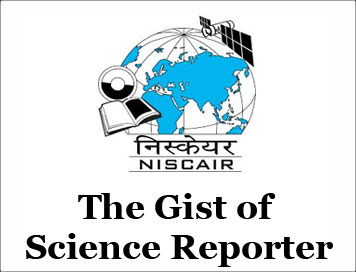(GIST OF SCIENCE REPORTER) Space Exploration Artemis-I — Moon to Mars Mission
(GIST OF SCIENCE REPORTER) Space Exploration Artemis-I — Moon to Mars Mission
(January-2023)
Space Exploration Artemis-I — Moon to Mars Mission
- As part of NASA’s Artemis-I mission, Space Launch System (SLS), the world’s most powerful rocket, launched the Orion spacecraft on 16 November 2022 from Launch Complex 39B at NASA’s
Kennedy Space Center in Florida. - This is NASA’s first integrated flight test of its Moon-to-Mars exploration approach. Artemis missions will enable NASA to land the first lady and the first person of colour on the moon’s surface serving as a stepping stone for a long-term lunar presence.
New study finds evidence of the presence of the first star
- A distant quasar’s spectrum has been found to contain evidence of the earliest stars in the universe, called Population III (Pop III) stars, according to an international group of researchers.
- Stars that undergo a PISN (Pairinstability Supernova) explosion may be among the first to have been born, and be responsible for the rapid enrichment of distant galaxies now being studied with the James Webb Space Telescope.
An asteroid killing dinosaurs sparks a global tsunami
- Earth lost nearly all dinosaurs and about three-quarters of its plants and animals due to an asteroid that struck Earth 66 million years ago.
- A study led by the University of Michigan has found that the impact site on Mexico’s Yucatan Peninsula caused a devastating tsunami with waves that reached mile heights, scouring the and erode sediments in ocean basins halfway around the globe, leaving either a gap in the sedimentary records or a jumble of older sediments.
IIT Madras and NASA JPL researchers study microbial interactions on International Space Station
- Researchers from the Indian Institute of Technology Madras and NASA Jet Propulsion Laboratory are studying interactions between microbes on the International Space Station (ISS).
- Researchers hope that the study will contribute to developing strategies for disinfecting space stations so microbes do not harm astronauts’ health. Observations of Klebsiella pneumonia, which causes pneumonia, and other nosocomial infections dominate the surfaces of the ISS, motivating this study.
- It was of great interest to the researchers to understand how this bacteria affects the growth of other microbes in the area and what implications this might have.
CLICK HERE TO DOWNLOAD FULL PDF
CLICK HERE TO DOWNLOAD UPSC E-BOOKS
Study Material for UPSC General Studies Pre Cum Mains
Get The Gist 1 Year Subscription Online
Click Here to Download More Free Sample Material
<<Go Back To Main Page
Courtesy: Science Reporter



